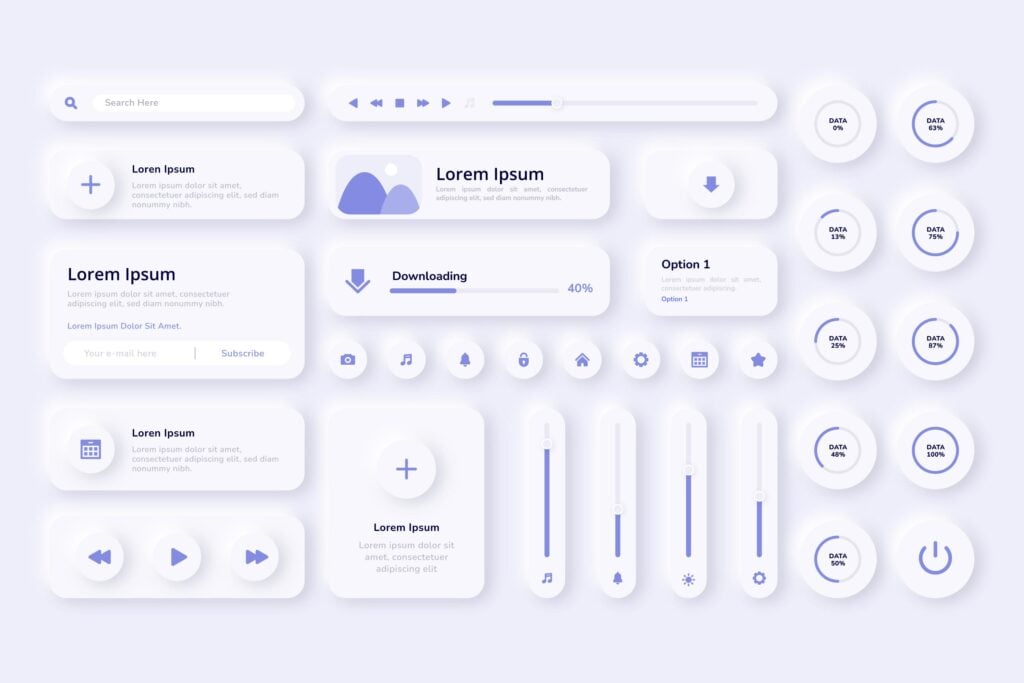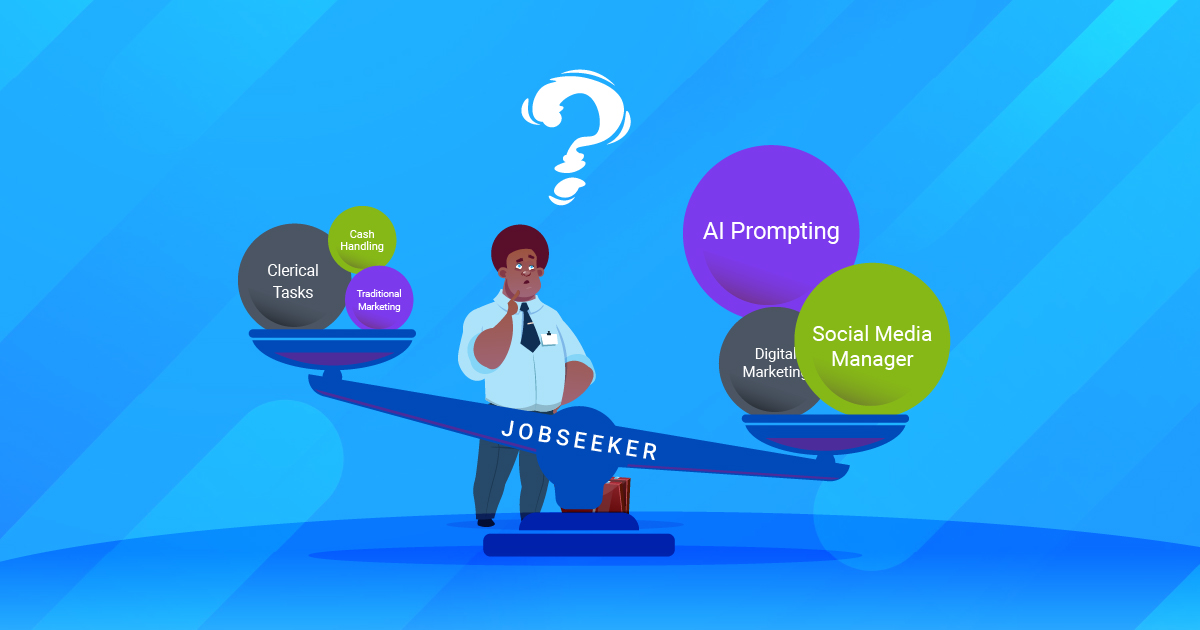Understanding in-demand skills in 2025 is essential as we approach a rapidly evolving market with tremendous technological advances and shifting economic activities and industries. Who thought that Google, a tech giant, would be challenged by a generative AI search engine and social media serving as search engines competing with Google? These are the tip of the iceberg regarding the rapidly changing job market and technological advancements.
With these skyrocketing changes and advances, job seekers are self-tasked with staying abreast of the in-demand skills that would make them good fits. Not only does the change put pressure on job seekers, but it also puts pressure on professionals. Thus, understanding what in-demand skill is key to a job role and industry potentially would make you a good fit.
Here are 10 most in-demand jobs and skills for 2025
Table of Contents
1. Data Scientist

Data scientists are not going anywhere anytime soon because they are responsible for mining big data to extract valuable information for strategic decision-making. Management uses complex datasets to make strategic decisions, so this role requires skills in Python programming, machine learning, R, Data visualisation, and statistical analysis. Data scientists can work in the e-commerce, finance, healthcare, and technology industries.
2. AI and Machine Learning

Artificial intelligence and machine learning have shaped the future of work with the use of generative AI. In light of that, companies seek professionals who can design and deploy AI models. AI engineers with machine learning languages create algorithms that power chatbots, recommendation systems and automation systems. This demands skills in Deep Learning – a branch of machine learning that “teaches computers to process data in a way inspired by the human brain. Deep learning models can recognise complex pictures, text, sounds, and other data patterns to produce accurate insights and predictions.” (Amazon Web Services, 2024)
It also demands skills in natural language processing, Tensorflow, and programming. Mastering AI and machine learning are relevant and in demand, as they have shaped the future of work and automation.
3. Cyber security

According to darkreading.com, Africa experienced the “highest cyber security attacks, with 2,960 weekly attacks per organisation.” Due to this increase in cyber attacks, organisations in Ghana and worldwide have taken stringent measures to conceal loopholes by requiring experts to develop systems that safeguard sensitive information. Cyber security specialists develop strategies to detect, prevent, and respond to breaches. This role requires ethical hacking, network security, risk management, and penetration testing skills. Cybersecurity professionals can work in the finance, IT, and healthcare industries.
4. Cloud Computing
Cloud computing has increasingly become the core of modern digital infrastructure. Cloud computing enables organisations to scale operations and optimise costs. Companies are actively investing in cloud migration and management, spurred by trends such as hybrid cloud adoption. Cloud computing specialists have become indispensable, and businesses are increasingly migrating their operations to the cloud.
This role requires skills in platforms like AWS, Google Cloud, and Microsoft Azure.
5. Blockchain Development
Blockchain technology has expanded beyond cryptocurrency, transforming finance, supply chain, and gaming industries. Developers skilled in blockchain are in high demand to create secure, transparent, and decentralised systems.
The rise of decentralised finance (DeFi) platforms like DEF Insurance and smart contracts has fueled this demand. Blockchain developers design and implement distributed ledgers, build smart contracts using programming languages like Solidity (Fernández-Iglesias, 2024) and ensure robust security measures to prevent vulnerabilities.
Logistics and healthcare industries leverage blockchain for transparent tracking and secure data sharing. With governments and private sectors exploring digital currencies, blockchain developers will remain vital in shaping the future of digital transactions.
6. UX/UI Design

User interaction and user experience on websites are relevant to SEO.
UX/UI designers ensure that digital products are intuitive, accessible, and visually appealing, enhancing user satisfaction and retention.
As businesses compete for user attention, these designers are critical in creating seamless customer journeys. Tools like Figma and Adobe XD for prototyping designs are also used to conduct research and improve user interactions.
Designers who can cater to diverse user needs while delivering innovation will be particularly sought after.
7. Digital Marketing
Google continues to face competition, with platforms like TikTok increasingly used as search engines. However, integrating social media profiles directly into Google search results reinforces the enduring relevance of digital marketing. Digital marketing and its diverse branches are far from obsolete and remain critical tools for thriving businesses.
8. Robotics

Robotics is automating repetitive tasks in industries like healthcare. They also achieve heights and capabilities that human beings cannot attain that are relevant to automation. Other sectors using robotics include the agriculture and manufacturing industries. The demand for robotics engineers is fueled by the necessity to develop solutions for various industrial challenges. Thus, as industrial challenges aren’t exhausted, robotics would be needed. Key skills required to succeed as a robotics engineer include Mechanical engineering, AI integration, programming and computer vision.
9. Market Research Analysis
Data has become an essential part of organisational life. Organisations now depend on research to understand consumer needs and develop products that solve customer needs. Market research analysts gather and analyse data to enable organisational heads to make informed and strategic decisions. These insights are invaluable for crafting effective marketing campaigns, entering new markets, and developing innovative products.
10. Social Media Management

Social media has become a tool for branding organisations to connect with customers more personally. Whether for sales, engagement or branding, this tool has become inevitable. Because of this rise, companies increasingly hire social media marketers who often become managers creating customer-centric, appealing content. This role has evolved to using AI in writing copies that tell stories or even using design templates like Canva that assist in designing visually appealing static or animated content. This job goes beyond content creation; there is the incorporation of analytics to understand performance and what needs to be tweaked. Tools like OpenAI’s ChatGPT and Google’s Gemini, amongst others, generate text-based copies, whereas video and graphic AIs like Freepik and Canva create the magic of animation.
In conclusion, the job market 2025 presents exciting opportunities driven by technological advancements that are reshaping industries across the globe. From data scientists to AI engineers, cybersecurity specialists, and digital marketers, the demand for specialised skills is higher than ever. As the digital landscape evolves, job seekers and professionals must remain adaptable, continuously learning and upgrading their skills to stay relevant.
Find your next job opportunity on Jobberman today!





